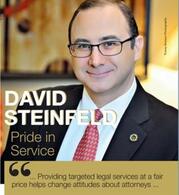How can you get out of your commercial lease
Commercial leases are controlled by Part I of the Landlord Tenant Act in Florida. It is found at Chapter 83 in the Florida Statutes. The terms of each lease are unique. For each particular situation an experienced business lawyer must review your lease to determine if you can be released from those obligations and what you can do.
What if my business is moving or closing
Let us presume that your business signed a lease for office space three years ago. The lease is expiring at the end of the month. We will refer to that as Space One. Let us also presume that two years ago your business took over the adjacent space but did not sign a lease for that. We will call that Space Two. Now your business has decided to move or close and you want to know if and how you can get out of the situation.
When you have a written lease
With regard to Space One the lease expires soon by its own terms. Because you already paid the rent and did not give notice of intent to renew under the terms allowing for that you can continue to occupy the premises until the last day of the month. If you want to leave sooner you can ask the landlord if it will agree to a pro-rated refund of the rent. If the landlord refuses then you can still vacate early but may have to go to court to get a refund if the landlord takes possession and control for its own use. If the lease allows for fees and your business wins, then it can recover its fees. The winner gets their court costs like filing fees under Florida’s Landlord Tenant Act.
What if you are month-to-month
As to Space Two where you have no written lease your business is deemed a month-to-month tenant. Because it already paid the monthly rent it can continue to occupy the premises until the end of the month. As with Space One, if you tell the landlord you wants to leave then the landlord may be willing to refund part of the rent. But your business would only be entitled to a partial refund if the landlord takes possession for its own use before the end of the month. Unlike Space One because you have no written lease there is no automatic entitlement to attorneys fees in that lawsuit. But your business can still recover its costs if it prevails.
What should I tell my landlord
To be fair to your landlord you should notify it that you intend to vacate both premises on or before the end of the month. You should explain that the notice is a courtesy to let the landlord prepare to re-let both premises. In that notice you can ask whether the landlord is amenable to refunding part of your rent. More often than not business disputes are the product of poor communication. Reaching out to your landlord in a businesslike fashion may resolve any potential dispute before it can even evolve and that is good for your business.
What happens if I overstay my lease
The terms of the commercial lease control the situation. If the lease is silent as to holding over then you become a month to month tenant at Space One from next month. A month to month tenancy can be terminated by notice given before the middle of the month. So even if the landlord accepts the rent for next month it can terminate your tenancy and demand the return the premises by the end of next month. That notice must be given to you in the first half of the month, must comply with the Landlord Tenant Act, and must give you until the end of the month to move out.
Can my landlord force me out if I have no lease
As to Space Two in which your business is presently a month to month tenant, the landlord can terminate your tenancy and require that you vacate by the end of the month if it gives you notice before the middle of this month. But the landlord cannot do that for Space One this month because you have a written lease. So the smart play is to deliver your courtesy notice after the middle of the month stating that you intend to vacate by the end of the month. That way you will not receive a month to month termination notice for this month. Also if you need a little time beyond the end of the month to move out the courtesy you extend to the landlord now may provide a benefit of allowing you to do that later.
How does an eviction lawsuit work
Self-help is not allowed in Florida. A landlord cannot remove a tenant without going to court. Further an eviction must be based on proper notice. The law provides for these notices like the three day or the seven day notice but a lease may enlarge those times.
Response times are shortened
The Landlord Tenant Act in Florida and cases interpreting those statutes allow for a shorter response time in an eviction lawsuit. Instead of the normal twenty days, for the possession part of the eviction the time can be reduced to five days from the date of service. The tenant is also required to pay any rent due into the court registry or to move to determine that amount. Failure to do both will entitle the landlord to a default judgment for eviction.
What is a Writ of Possession
The byproduct of an eviction is a writ of possession. The Writ commands the sheriff to place the landlord in possession of the premises. A claim for possession is separate from a claim for unpaid rent. The unpaid rent claim still adheres to the regular twenty day response time under the Rules of Civil Procedure.
Summing up how you can get out of your commercial lease
If you are the tenant, the appropriate time to consult with counsel is before your business is served with an eviction. You will want your business lawyer to educate you on your options and potentially negotiate an amicable resolution to the situation. Also you and your attorney will have a chance to develop a response plan to any eviction action that the landlord may file.
If you are the landlord, the appropriate time to consult with counsel is when your tenant misses a monthly payment. You will want to assess whether to serve a proper notice and to know how much an eviction will cost and how long it will take. With that information you can make an informed business decision whether to negotiate a voluntary lease termination agreement that your business attorney should draft or to pursue the eviction in the courts.
If you are the landlord, the appropriate time to consult with counsel is when your tenant misses a monthly payment. You will want to assess whether to serve a proper notice and to know how much an eviction will cost and how long it will take. With that information you can make an informed business decision whether to negotiate a voluntary lease termination agreement that your business attorney should draft or to pursue the eviction in the courts.
Prepared by business litigation expert attorney David Steinfeld

David Steinfeld is one of the few Board Certified business law experts in Florida. He has been licensed for more than 25 years. He is AV-Preeminent rated, ranked as one of the Best Lawyers in America by U.S. News and World Report, and consistently named a Florida Super Lawyer and one of Florida’s Legal Elite. Dave has also received Martindale’s prestigious Judicial Edition Award for high reviews by Judges, its Platinum Client Champion Award and has a 10.0-Superb rating on AVVO as well as a 10.0 rating on Justia, lawyer reviews websites.
Check out business lawyer David Steinfeld online for helpful videos and articles on Florida business law, real estate disputes, and electronic discovery solutions for your business. This article is provided for informational purposes only.
Check out business lawyer David Steinfeld online for helpful videos and articles on Florida business law, real estate disputes, and electronic discovery solutions for your business. This article is provided for informational purposes only.
